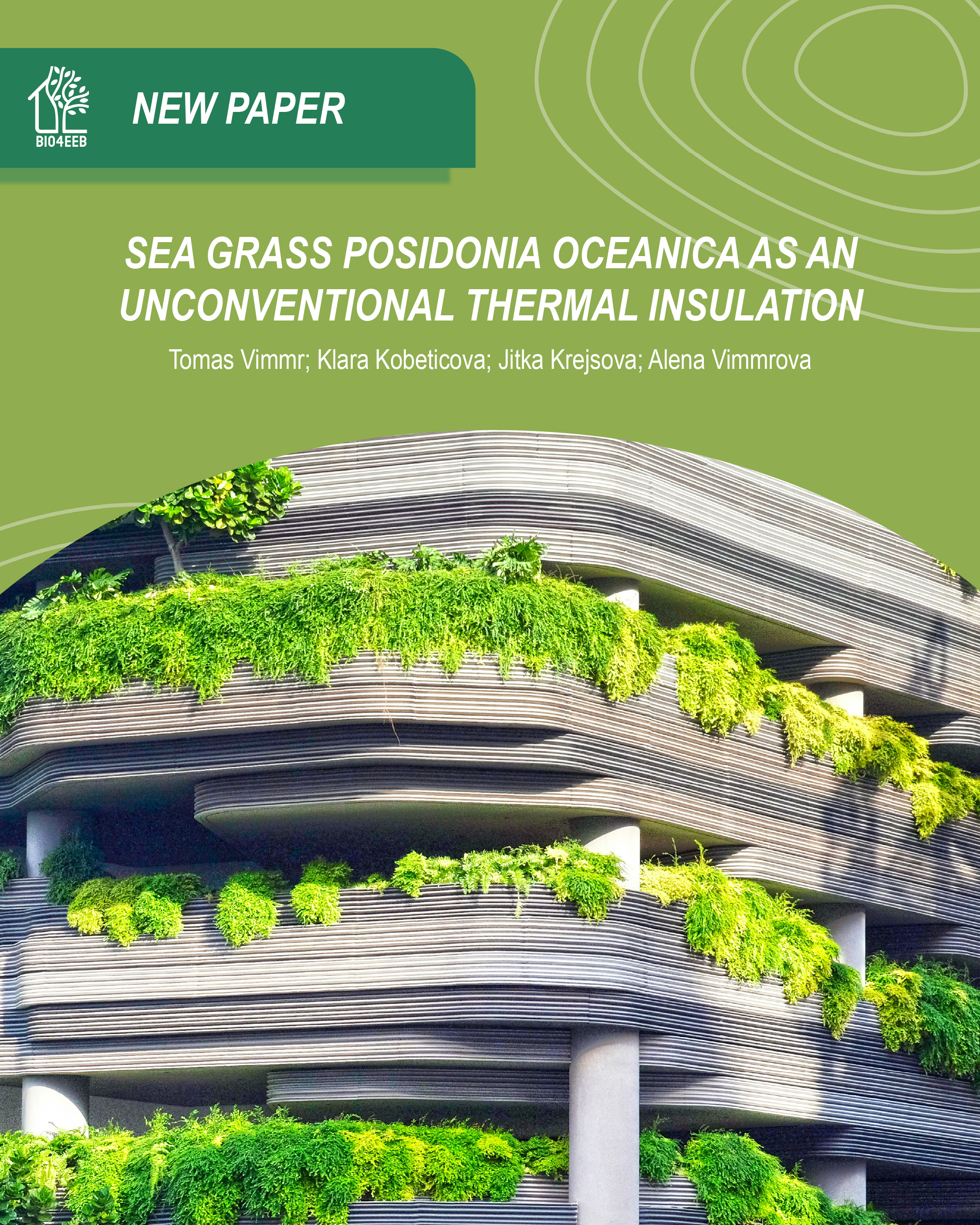BIO4EEB is pleased to announce the release of a new scientific paper on the topic of Green Building Materials and Eco-Technologies.
Co-written by: Tomas Vimmr, Klara Kobeticova, Jitka Krejsova, Alena Vimmrova
The construction industry is one of the largest air polluters. This fact, along with the increasing demand for savings of heating energy, is leading to a growing interest in more eco-friendly materials for building thermal insulations. New thermal insulating material, prepared from the Posidonia Oceanica (commonly known as sea grass or Neptune grass) was prepared and studied. Posidonia Oceanica is an endemic plant that grows in large quantities in the shallow waters of the Mediterranean Sea. It is a protected species, but this protection does not apply to the non-living parts of the plant. Thermal insulating boards were made from dead Posidonia leaves bonded with plant-based epoxy. Bulk density of the boards ranged from 159 to 289 kg/m3, and coefficient of thermal conductivity was between 0.054 and 0.076 W/m. K. Tensile strength of boards with bulk density 240 kg/m3 and higher exceeded 2 MPa, which is sufficient for thermal insulation purposes. The ecotoxicity test showed that material is not ecotoxic for algae. The diffusion resistance of the boards was high (from 22 to 196 by wet cup method and 36 to 178 by dry cup method), because of the impermeable resin on the surface. The main problem of the Posidonia Oceanica boards was low mold resistance, which is common problem of most natural-based materials. This must be resolved, along with fire protection, before the material can be used in the buildings.

